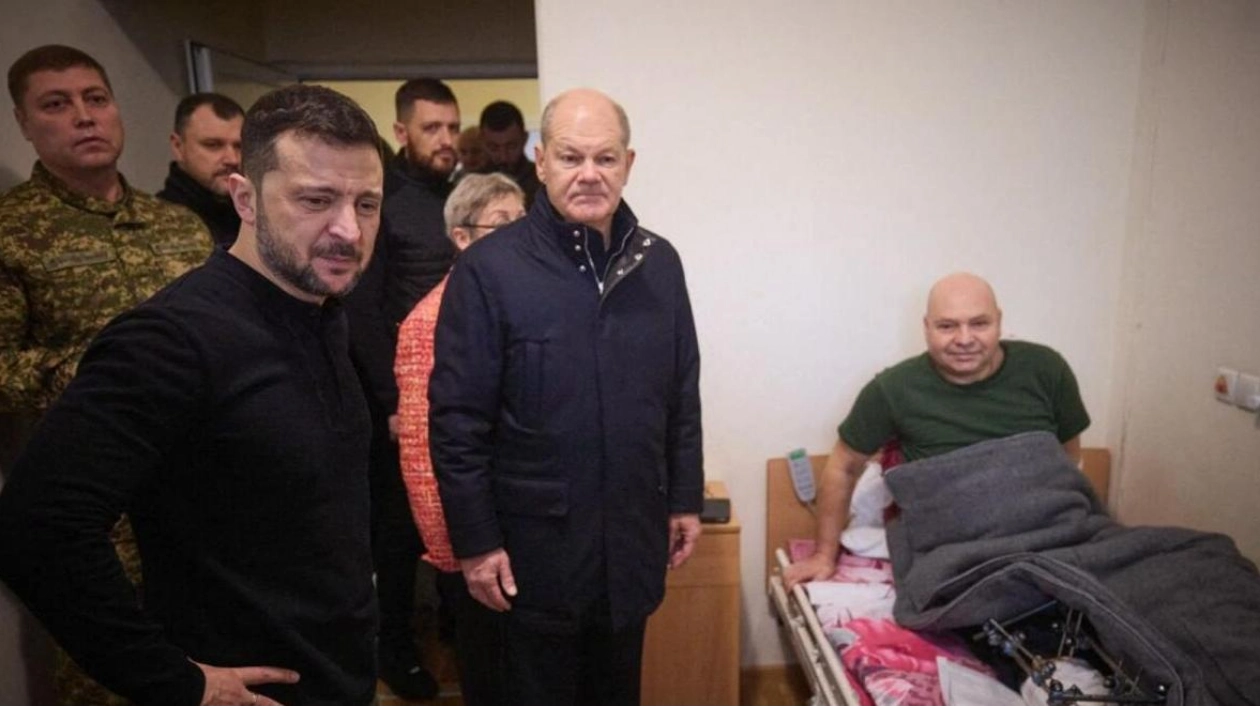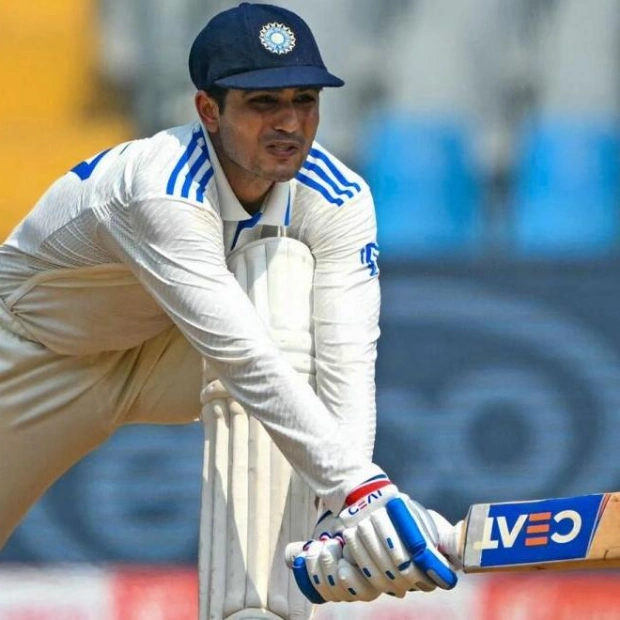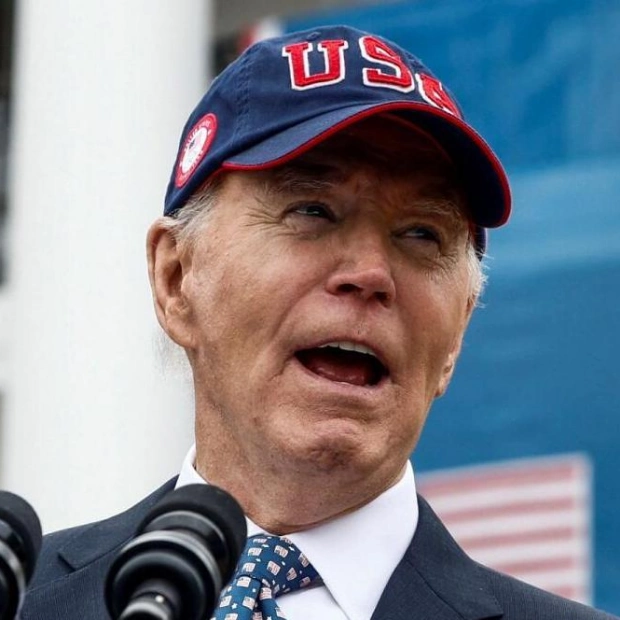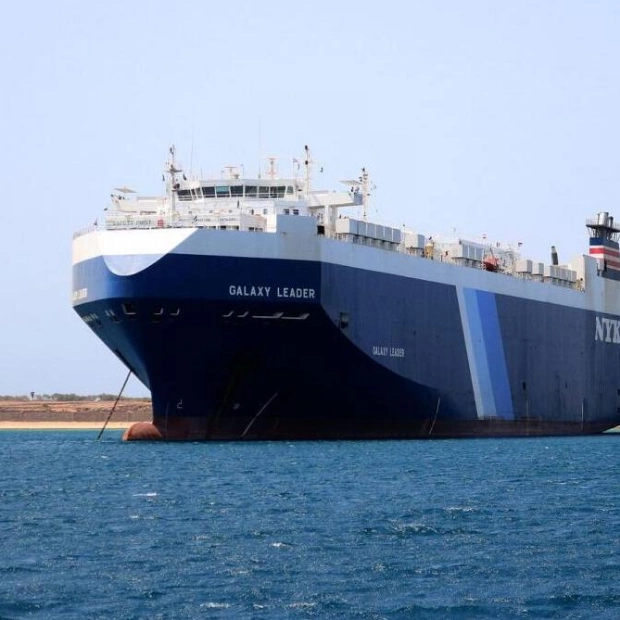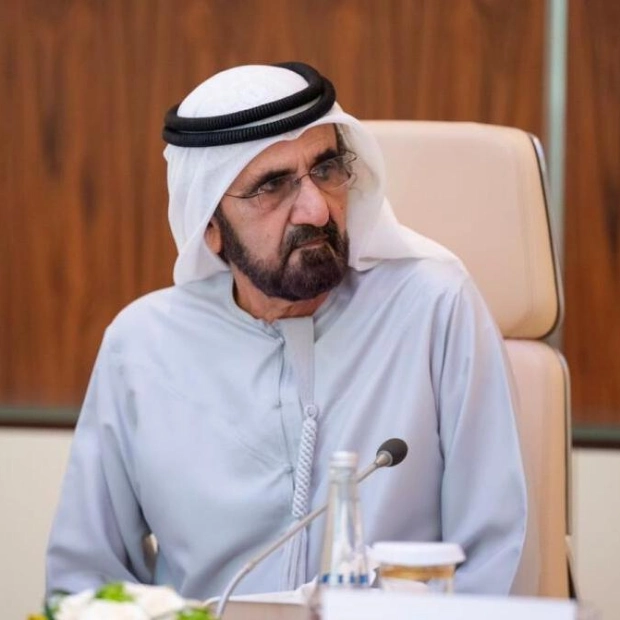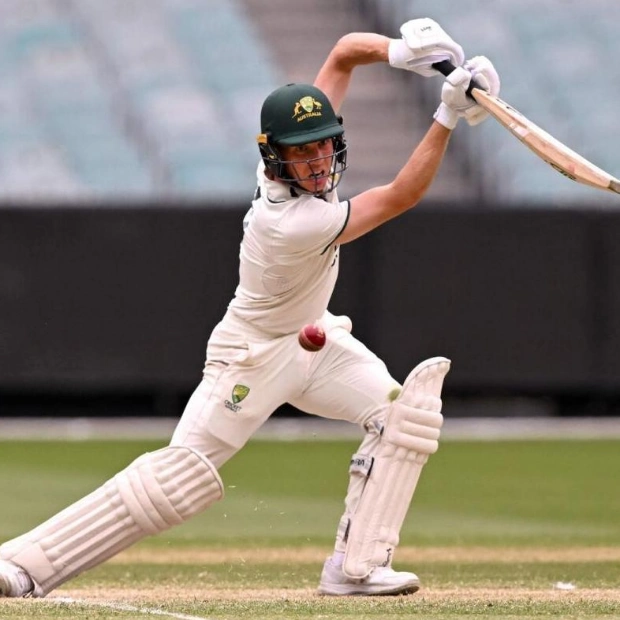Ukrainian President Volodymyr Zelensky (L) and German Chancellor Olaf Scholz (C) visited injured Ukrainian soldiers at a hospital in Kyiv, amid the ongoing Russian attack on Ukraine. AFP
Chancellor Olaf Scholz made a surprise visit to Ukraine on Monday to reaffirm German support for Kyiv, becoming the first major ally of the war-torn country to speak to Vladimir Putin in years, urging negotiations. This visit comes as Ukrainian forces struggle across the eastern front and concerns grow about future US support under a potential Donald Trump presidency in January. Russia launched another massive aerial assault with hundreds of drones just hours before Scholz's arrival, resulting in one death and three injuries in the western Ukrainian city of Ternopil.
Scholz announced plans to meet with President Volodymyr Zelensky and unveiled another package of military support worth 650 million euros ($680 million) to be delivered by the end of the year. "I want to make it clear here on the ground that Germany will remain Ukraine's strongest supporter in Europe," Scholz stated, as he faces new elections in February following the collapse of his coalition last month. "Ukraine can rely on Germany — we say what we do. And we do what we say," he added in a social media post.
In mid-November, Scholz sparked controversy and concern in Ukraine by becoming the first Western leader in years to speak by phone with Russian President Vladimir Putin. Zelensky criticized the call, arguing it had opened a "Pandora's Box" by weakening Putin's international isolation. During the call, Scholz condemned the war and urged Russia to negotiate with Ukraine for a just and lasting peace, according to the chancellor's office. The Kremlin, however, stated it had no expectations from Scholz's visit.
Ukraine is bracing for a challenging winter as Russia continues its drone and missile attacks on the country's power grid. The air force reported that Russia launched 110 drones overnight, including Iranian-designed Shahed unmanned aerial vehicles from four regions of Russia. The bombardment resulted in the death of a 45-year-old man in Ternopil, a town of around 224,000 people, where previous strikes had left thousands without electricity.
Scholz's visit precedes the January 20 inauguration of Trump, who has pledged to swiftly end the war, raising fears that he might force Ukraine to accept a deal on Moscow's terms. Separately, German Foreign Minister Annalena Baerbock warned her Chinese counterpart that Beijing's support for Moscow would impact bilateral ties and urged China to help end the Ukraine conflict.
Zelensky emphasized that his country needs security guarantees from NATO and more weapons to defend itself before any talks with Russia. He made these comments after meeting with the EU's new head of diplomacy Kaja Kallas and EU Council chief Antonio Costa, who visited Kyiv to show support on their first day in office. Under Scholz, Germany has become the second-largest arms supplier to Ukraine after the United States but has refused to send long-range missiles that could strike deep inside Russia.
In a campaign speech in Berlin, Scholz criticized political rivals pushing for Germany's Taurus long-range missile system to be delivered to Ukraine, arguing that confronting Moscow, a nuclear power, with such a threat would amount to playing "Russian roulette" with Germany's security.
Source link: https://www.khaleejtimes.com
